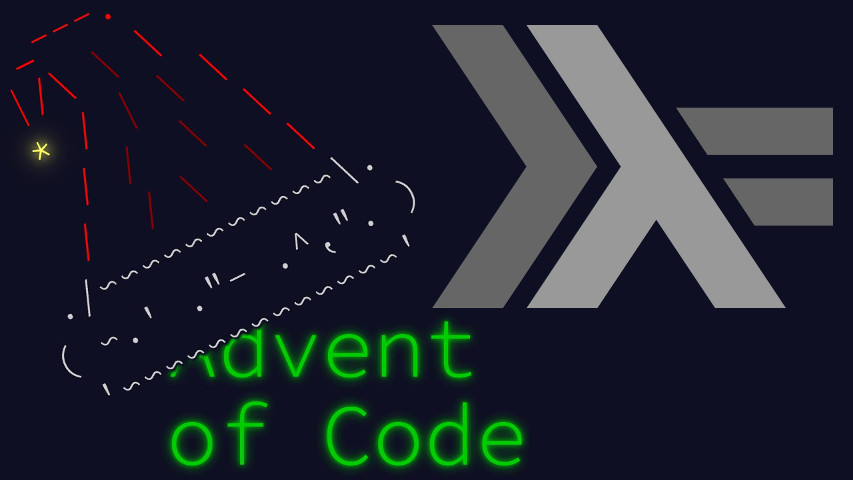Day 11, “Dumbo Octopus”, is the closest we’re getting to a cellular automaton in the present state of this year’s Advent of Code. I’ll be using various incarnations of the Writer monad, imported here.
import Control.Applicative (liftA2)
import Control.Arrow ((&&&),(***))
import Control.Monad (guard,(>=>))
import Control.Monad.Writer.Class (tell)
import qualified Control.Monad.Writer.Lazy as L
import qualified Control.Monad.Writer.Strict as S
import Data.Array
import Data.Char (digitToInt)
import Data.List (elemIndex)
import Data.Maybe (fromMaybe)
import Data.Monoid (Sum(Sum))The octopuses are conveniently arranged in a 2D grid.
type OctoGrid = Array (Int,Int)To handle the flashing, I’ll enhance the octopuses’ energy level to remember whether they flashed in this step: I wouldn’t want to let them flash twice, messing up with my counting.
flash :: OctoGrid (Maybe Int) ->I’ll call this flash function iteratively until there’s no octopus
left with a high enough energy level. So I’ll aggregate the tally of
flashes using a (strict) writer monad over a Sum
monoid.
S.Writer (Sum Int) (OctoGrid (Maybe Int))The octopuses that should flash are those with an energy level over
9. The octopuses that just flashed are
now valued at Nothing, which compares under
Just 9.
flash g = case filter ((> Just 9) . (g!)) (indices g) ofThe easy case is the termination one: just return the grid as is, and don’t iterate any more.
[] -> pure gIf there are octopuses scheduled to flash, count them, update the grid, and iterate.
flashing -> tell (Sum (length flashing)) *>
flash (accum (liftA2 (+)) g (concatMap dazzle flashing))Updating the grid adds one to the neighbors’ energy level, and marks the flasher away.
where dazzle (i,j) = [ ((i',j'),1 <$ guard ((i',j') /= (i,j)))
| i' <- [i-1..i+1], j' <- [j-1..j+1]
, inRange (bounds g) (i',j') ]With this simple building block, I can implement the full step by function composition. In order:
- expand the energy level type and increase it
- iteratively flash as long as it has to
- aggregate the flash count
- reduce to a simple energy level
- report the step’s flash count
step :: OctoGrid Int -> L.Writer [Sum Int] (OctoGrid Int)
step = L.writer . (fmap (fromMaybe 0) *** pure) .
S.runWriter . flash . fmap (Just . succ)Iterating steps yields a full simulation, returning the flash count per step. As it’s an infinite list, I use a lazy writer there.
simulate :: OctoGrid Int -> [Sum Int]
simulate = L.execWriter . go where go = step >=> goPart 1 asks for the total flash count in 100 turns.
part1 :: [Sum Int] -> Sum Int
part1 = mconcat . take 100Part 2 asks for the first step number that flashes them all.
(succ to convert from 0-based list indexing to human
ordinals)
part2 :: [Sum Int] -> Maybe Int
part2 = fmap succ . elemIndex (Sum 100)Here’s the wrapping code for completeness.
parse :: String -> OctoGrid Int
parse = listArray ((1,1),(10,10)) . map digitToInt . concat . lines
main :: IO ()
main = interact $ show . (part1 &&& part2) . simulate . parseThe literate Haskell program is on GitHub as usual. See you tomorrow!



